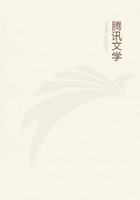LADY O'MOY
Across the frontier in the northwest was gathering the third army of invasion, some sixty thousand strong, commanded by Marshal Massena, Prince of Esslingen, the most skilful and fortunate of all Napoleon's generals, a leader who, because he had never known defeat, had come to be surnamed by his Emperor "the dear child of Victory."
Wellington, at the head of a British force of little more than one third of the French host, watched and waited, maturing his stupendous strategic plan, which those in whose interests it had been conceived had done so much to thwart. That plan was inspired by and based upon the Emperor's maxim that war should support itself; that an army on the march must not be hampered and immobilised by its commissariat, but that it must draw its supplies from the country it is invading; that it must, in short, live upon that country.
Behind the British army and immediately to the north of Lisbon, in an arc some thirty miles long, following the inflection of the hills from the sea at the mouth of the Zizandre to the broad waters of the Tagus at Alhandra, the lines of Torres Vedras were being constructed under the direction of Colonel Fletcher and this so secretly and with such careful measures as to remain unknown to British and Portuguese alike. Even those employed upon the works knew of nothing save the section upon which they happened to be engaged, and had no conception of the stupendous and impregnable whole that was preparing.
To these lines it was the British commander's plan to effect a slow retreat before the French flood when it should sweep forward, thus luring the enemy onward into a country which he had commanded should be laid relentlessly waste, that there that enemy might fast be starved and afterwards destroyed. To this end had his proclamations gone forth, commanding that all the land lying between the rivers Tagus and Mondego, in short, the whole of the country between Beira and Torres Vedras, should be stripped naked, converted into a desert as stark and empty as the Sahara. Not a head of cattle, not a grain of corn, not a skin of vine, not a flask of oil, not a crumb of anything affording nourishment should be left behind. The very mills were to be rendered useless, bridges were to be broken down, the houses emptied of all property, which the refugees were to carry away with them from the line of invasion.
Such was his terrible demand upon the country for its own salvation.
But such, as we have seen, was not war as Principal Souza and some of his adherents understood it. They had not the foresight to perceive the inevitable result of this strategic plan if effectively and thoroughly executed. They did not even realise that the devastation had better be effected by the British in this defensive - and in its results at the same time overwhelmingly offensive - manner than by the French in the course of a conquering onslaught.
They did not realise these things partly because they did not enjoy Wellington's full confidence, and in a greater measure because they were blinded by self-interest, because, as O'Moy told Forjas, they placed private considerations above public duty. The northern nobles whose lands must suffer opposed the measure violently; they even opposed the withdrawal of labour from those lands which the Militia Act had rendered necessary. And Antonio de Souza made himself their champion until he was broken by Wellington's ultimatum to the Council. For broken he was. The nation had come to a parting of the ways. It had been brought to the necessity of choosing, and however much the Principal, voicing the outcry of his party, might argue that the British plan was as detestable and ruinous as a French invasion, the nation preferred to place its confidence in the conqueror of Vimeiro and the Douro.
Souza quitted the Government and the capital as had been demanded.
But if Wellington hoped that he would quit intriguing, he misjudged his man. He was a fellow of monstrous vanity, pride and self-sufficiency, of the sort than which there is none more dangerous to offend. His wounded pride demanded a salve to be procured at any cost. The wound had been administered by Wellington, and must be returned with interest. So that he ruined Wellington it mattered nothing to Antonio de Souza that he should ruin himself and his own country at the same time. He was like some blinded, ferocious and unreasoning beast, ready, even eager, to sacrifice its own life so that in dying it can destroy its enemy and slake its blood-thirst.
In that mood he passes out of the councils of the Portuguese Government into a brooding and secretly active retirement, of which the fruits shall presently be shown. With his departure the Council of Regency, rudely shaken by the ultimatum which had driven him forth, became more docile and active, and for a season the measures enjoined by the Commander-in-Chief were pursued with some show of earnestness.
As a result of all this life at Monsanto became easier, ,and O'Moy was able to breathe more freely, and to devote more of his time to matters concerning the fortifications which Wellington had left largely in his charge. Then, too, as the weeks passed, the shadow overhanging him with regard to Richard Butler gradually lifted. No further word had there been of the missing lieutenant, and by the end of May both O'Moy and Tremayne had come to the conclusion that he must have fallen into the hands of some of the ferocious mountaineers to whom a soldier - whether his uniform were British or French - was a thing to be done to death.
For his wife's sake O'Moy came thankfully to that conclusion. Under the circumstances it was the best possible termination to the episode.















